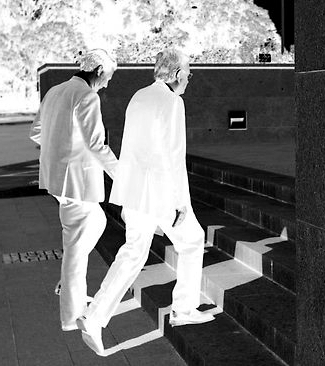Lowe reflects on wage link
 Reserve Bank governor Philip Lowe says there will be major flow-on effects now that Australia's employers cannot “tap” global labour markets for foreign workers.
Reserve Bank governor Philip Lowe says there will be major flow-on effects now that Australia's employers cannot “tap” global labour markets for foreign workers.
In an address to the Economic Society of Australia this week, Dr Lowe said Australia’s labour market had become more “flexible” in recent decades, making it easier for employers to import workers from overseas.
This partly explained why wages have not increased alongside the rising demand for labour.
“This benefit was clearly evident during the resources boom, and there are a wide range of businesses in industries that have benefited from hiring foreign workers,” he said.
“Without this ability, output in Australia would have been lower.”
However, he said sourcing workers from overseas “dilutes” upward pressure on wages, and that effect spreads to the rest of the labour market.
“This hiring can [also] dilute the incentive for businesses to train workers to do the required job,” Dr Lowe said.
He said immigration is need to add to both the supply of, and demand for, labour in the Australian economy. However, he noted that the precise balance between extra labour supply and extra labour demand is difficult to determine and depends on specific circumstances.
Dr Lowe said that when employers can “tap into the global labour market” for workers in short supply in Australia, it risks “flattening the supply curve” for those kinds of workers.
“A flat supply curve means that a shift in demand has only a small effect on prices, or in this case, wages,” Dr Lowe said.
“In my view, this is one of the factors that has contributed to wages being less sensitive to shifts in demand than was once the case.”
For now, the Reserve Bank boss said there are small pockets of wage growth in some sectors of the economy, but employers are generally still reluctant to lift wages to attract workers.
Many are holding out for borders to reopen, Dr Lowe said, noting that the COVID-19 pandemic remains one of several “powerful” structural factors at work to keep wages low.
He pointed to a significant psychological factor that is making employers obsessed with cost-cutting.
“I don't see those factors going away quickly,” Dr Lowe said.
“They were there for a decade. They're fundamental. They're global.
“And because we don't see them turning around quickly, the grind higher in wages will be slow and if wages growth is still running with a 2 in front of it [in coming years] it's going to be very difficult for us to deliver an inflation rate [of] around 2.5 per cent.
“That process is going to take time to work through,” he said.








 Print
Print